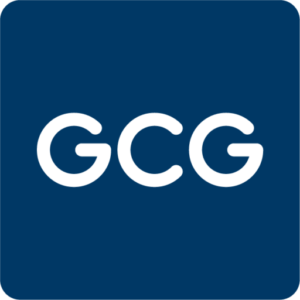
GCG Leadership Development Team
Feedforward represents a transformative approach to leadership development, distinctively focusing on future possibilities rather than past performances. Unlike traditional feedback, which often delves into evaluations of past actions, feedforward encourages constructive suggestions without passing judgment. This approach not only supports leaders in future endeavors but also fosters a collaborative and positive workplace environment.
Best Practices in Implementing Feedforward
1. Embrace Suggestions as Gifts
Leaders might often question the necessity of implementing every suggestion received. It’s vital to understand that suggestions are indeed gifts; they are optional and can be selectively acted upon. When a leader solicits feedforward, they should maintain an attitude of gratitude—simply thank colleagues for their contributions. Subsequently, leaders should thoughtfully consider which suggestions align with their immediate goals and available resources, exercising discernment to decide which suggestions to act upon. This selective implementation underscores the leader’s autonomy and reinforces the non-mandatory nature of suggestions.
2. Keep it Concise
Effectiveness in feedforward can also be achieved by succinctness. If opting for in-person solicitations, leaders should ask for brief, focused suggestions, ideally within a one-minute interaction, without getting into extended dialogues or critiquing ideas on the spot. To be more specific, the leader should ask in 10 seconds, then listen for 1-2 minutes and end with a ‘thank you’. This approach not only saves time but also ensures that the conversation remains non-judgmental and straightforward, encouraging more open and frequent contributions from colleagues.
3. Schedule Brief One-on-One Meetings
For deeper engagement, leaders can schedule brief personal meetings with their coworkers, ideally lasting no more than five minutes. Prior to meetings, a short message explaining the purpose and focus areas can be sent to coworkers, giving them time to prepare thoughtfully. During these sessions, leaders should focus on listening and appreciating the input without delving into detailed discussions about the suggestions. This method enhances personal connections and opens up channels for candid, valuable feedforward.
4. Focus on the Task, Not the Person
When soliciting feedforward, framing questions around specific tasks rather than personal attributes can lead to more objective and helpful suggestions. Since feedforward is future-oriented, it naturally avoids the biases and emotional resistance often encountered in feedback sessions. By concentrating on what can be done in the future, feedforward makes it easier for people to offer practical, actionable suggestions without the baggage of personal judgment.
5. Collecting Feedfoward to Measure Improvement
A pivotal element in modern feedforward practices involves leveraging technology to streamline the process. Global Coach Group’s online coaching tools represent an exemplary method for collecting feedforward efficiently. These tools enable automated emails to coworkers requesting suggestions, which they can consider and articulate at their convenience. This not only facilitates thoughtful responses but also eases the compilation and subsequent review of these suggestions during coaching sessions. By integrating these tools, leaders can manage feedforward processes effectively, maintaining an organized and proactive approach to developing actionable plans based on the collected insights.
Integrating these best practices into daily leadership activities can significantly enhance the effectiveness of feedforward. By focusing on constructive, forward-looking suggestions, leaders can foster an environment of continuous improvement and inclusivity. More importantly, these practices emphasize the collaborative nature of leadership growth, involving both leaders and their colleagues in a mutual journey toward achieving organizational and personal success. Through thoughtful implementation of these best practices, particularly the innovative use of online tools offered by Global Coach Group, leaders can navigate their development journey more effectively, ensuring sustained growth and improvement. For more insights and tools, visit globalcoachgroup.com/coaching-tools.
At Global Coach Group (GCG), our network of over 4,000+ experienced coaches are dedicated to delivering tailored leadership coaching to help leaders become more self-aware, improve their communication strategies, and ultimately drive better team performance.
For leaders who want to become coaches or coaches looking to enhance their leadership coaching skills, Global Coach Group (GCG) provides a comprehensive leadership coaching certification program. GCG’s internationally acclaimed coaching tools and resources can help you improve your coaching proficiency and empower you to guide others.

GCG Leadership Development Team
Learn about the GCG's Coaching Tools
Measurable results, in LESS Time.
Reduce your session prep and follow-ups to just 15 minutes, while delivering coaching that improves leadership, team and business performances with 95% coworker satisfaction
